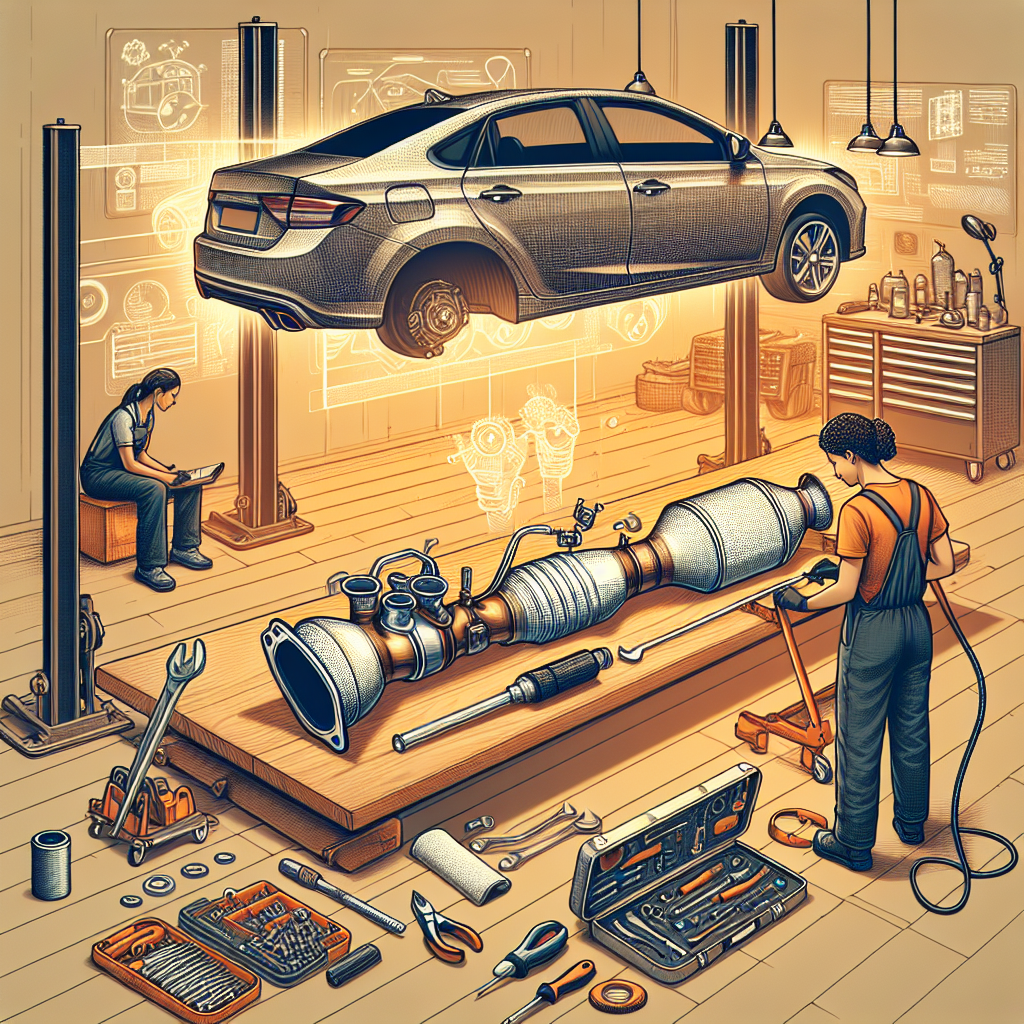How to Keep Your Catalytic Converter Working Well for a Long Time
Introduction
A catalytic converter is an important part of your car’s exhaust system. It helps reduce bad emissions from the car and makes the car run better. It turns harmful gases from the engine into less harmful ones before they go into the air. Taking care of your catalytic converter is important for your car’s performance, meeting the law’s emission standards, and protecting the environment. In this guide, we’ll learn how to keep your catalytic converter in great condition so it works well for a long time.
What is a Catalytic Converter?
Catalytic converters help clean the gases coming out of a car by using chemical reactions. They have precious metals like platinum, palladium, and rhodium inside that help change bad gases like carbon monoxide, nitrogen oxides, and hydrocarbons into safer ones like carbon dioxide and water vapor. There are two main types: two-way and three-way converters. Three-way converters are more common because they also reduce nitrogen oxides, meeting stricter emission standards.
Catalytic converters are very important for making sure cars follow the law and help the environment by reducing bad emissions.
Signs Your Catalytic Converter Needs Help
Knowing when your catalytic converter isn’t working right is important. Here are some common signs:
- Engine problems: You might notice your car doesn’t speed up as quickly.
- Check engine light is on: This could mean there’s a problem with the catalytic converter or sensors near it.
- Bad smell from exhaust: A sulfur or rotten egg smell can mean the catalytic converter needs attention.
These problems not only make your car run poorly but also make more air pollution, so fixing catalytic converter issues quickly is important.
Tips to Keep Your Catalytic Converter in Good Shape
To keep your catalytic converter working well, regular care is important:
- Get regular car check-ups: Make sure they check the exhaust system for any hidden problems.
- Do regular oil changes and engine maintenance: A well-maintained engine produces fewer leftover hydrocarbons that can harm the catalytic converter.
- Use good-quality fuels: Bad-quality fuel can make gunk build up and block the catalyst converter.
Keep Your Engine in Great Shape
Your engine’s health affects your catalytic converter directly:
- Fix engine misfires quickly: Unburned fuel from misfires can overheat and damage the catalytic converter.
- Change air and fuel filters regularly: This helps keep dirt and debris away from the catalytic converter.
- Use the right engine additives: They can help keep things clean and make the engine work better.
Fix Problems Early
Save money by spotting and fixing problems early:
- Clogging: Regularly clean or treat the converter.
- Damage: Check for leaks or hardware problems and fix them fast.
- Get an expert if needed: If problems continue, see a mechanic to prevent bigger issues.
Follow the Law and Be Kind to the Earth
Make sure your catalytic converter works well by following emission standards:
- Know local laws: Be aware of what emissions standards your car needs to meet.
- Think about the environment: A broken catalytic converter increases your car’s carbon output.
- Stay compliant: Regular testing and check-ups help you stay within legal limits.
Conclusion
Taking care of your catalytic converter is crucial for both car performance and being responsible for the environment. Regular check-ups and professional inspections can prevent costly repairs and fines. They also ensure long-term efficiency and compliance with emissions standards.
Call to Action
Make sure you take care of your catalytic converter. Schedule your next maintenance check or do a home check-up. By doing this, your car will run smoothly, and you’ll help the environment. For more detailed help or to set up a professional service, please feel free to visit us at Tags Clinic at 3845 University Ave, San Diego, CA or call us at 619-777-9046.
References and Resources
- EPA Guide on Catalytic Converters
- ASE Maintenance Tips
- Reach out to your local car service expert for advice and help.

Leave a Reply